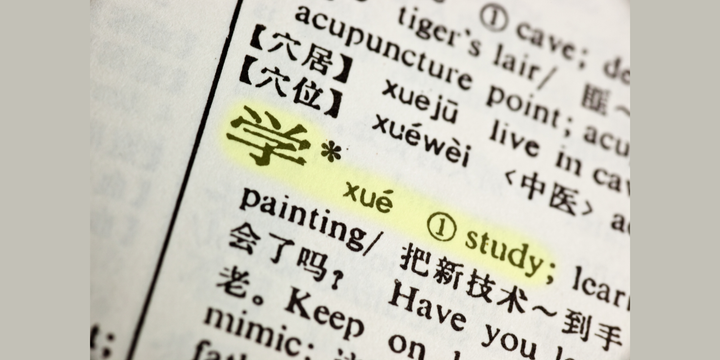Accentuate the foreignness: how SMEs can build trust in new markets
It’s not easy being small and foreign in a big market like China, but new research shows how NZ SMEs can turn this challenge into a competitive advantage.

It’s not easy being small and foreign in a big market like China, but new research shows how New Zealand SMEs can turn this challenge into a competitive advantage.
The Context
- For many SMEs, launching a product and building a reputation from the bottom of the world may seem to be a formidable challenge, especially in markets such as China where customers might see New Zealand as small and foreign. Whether to fit in or stand out could be a momentous decision.
- New research suggests that SMEs can connect with customers through accentuating rather than downplaying New Zealand’s size and foreignness, though they need to be proactive and not rely only on New Zealand’s generic brand image.
- A study of 22 New Zealand Food and Beverage SMEs entering the Chinese market found that making foreignness an asset requires demonstrating trust, leveraging institutions and networks, and a dash of authenticity.
- The study by Dr Antje Fiedler and Dr Benjamin Fath, Senior Lecturers at the Department of Management and International Business at The University of Auckland, and their colleagues Professor Hugh Whittaker (University of Oxford) and Marko Garlick, is reported in their paper Activating assets of foreignness in compressed developing markets: evidence from New Zealand SMEs entering the Chinese market (abstract/paywall).
The Context spoke to Dr Fiedler about what New Zealand SMEs can learn from the research.
It all starts with the art of telling your ventures’ unique story. Storytelling is the way humans have always built bridges with one other and this applies equally to firms entering a new and culturally different market. A compelling ‘brand story’ that speaks to New Zealand’s unique lifestyle was found to be deeply engaging to consumers in China.
“We know as New Zealanders that we have a clean and green image” said Dr Fiedler, “but what we learned is that a brand story requires a little bit more.”
That ‘little bit more’ goes beyond the well-trodden postcard images of sheep in lush pastures and branches out to encapsulate the sustainability of a product and the core values for which it stands. In their research, Dr Fiedler and Dr Fath interviewed several SMEs that used creativity and an innovative mindset to overcome distance and foreignness when entering the Chinese market. One such example was a family-owned winery that shared its philosophies through the personal stories, photographs and videos of the vineyard, but also by inviting senior management from the Chinese purchasing company over to New Zealand for a visit.
When the business owner has a personal connection to the international purchaser, has even hosted them for dinner, it’s much more likely that the brand’s story will be re-told to consumers with genuine enthusiasm and authenticity.
Dr Fiedler summarised it succinctly:
“Smallness is often seen as a disadvantage, but I think in China, to go back to the roots of a product and have these honest traditions and methods of production demonstrates a much stronger bond to the company and the people who are working for it. In New Zealand there’s very little hierarchy, there’s trust, and I think that’s enormously attractive. Chinese consumers value that because they are used to large firms and mass production.”
From “Made in New Zealand” to showing how it’s made
The essence of ‘boutiqueness’ is not about being small, rather it’s about a niche product’s value to high-end customers within a mass market, and likewise it’s about more than luxury. Due to food safety concerns, China is one of the few markets where domestic customers will pay significantly more for imported food and beverages than domestic equivalents. New Zealand products, with their emphasis on a natural, clean and unpolluted origin, have highlighted their sustainability by using modern technology such as waste, water and energy management systems.
But there is another vital ingredient in the mix—trust.
With many ‘fakes’ on the market, small firms are required to do more than just state clean and green claims – they must also verify them. New Zealand food safety standards and regulations are clear and show how differentiating oneself from local products has, in this case, distinct advantages. But as good as our safety standards may be, the research suggests that they aren’t guarantee enough for many discerning consumers.
“Firms who really did well were actively leveraging these institutional advantages and had mechanisms that went beyond just saying ‘Made in New Zealand’,” said Dr Fiedler.
This is where technology comes into play. Although it’s a financial hurdle for small firms to overcome, investing in tracking and tracing systems that involve scannable barcodes, protection seals on products and independent certifications, do pay dividends, ultimately allowing a company to charge premium prices. That, and making sure the original product labelling remained in English, all coalesced to demonstrate the legitimacy of the product. Legitimacy of the people behind the product, meanwhile, was another factor in making foreignness an asset.

Valued networks and familiar photos
Status, connectedness and power—three factors the research identified as crucial when doing business in China, but which a humble SME owner might not associate with themselves. Yet they may have more esteem than they realise, as Chinese customers value connections that New Zealand businesses may take for granted.
An affiliation with New Zealand government representatives, attendance at trade delegations, or even—as was the case with one CEO interviewed—a photo with the Prime Minister of New Zealand, all improved reputation in the eyes of Chinese customers. In addition to an enhanced perception of trust through governmental affiliation, customers in China saw positives in the distancing and differentiation of these firms from weaker local institutions.
There are many ways for SMEs to build such affiliations with trusted institutions. Dr Fiedler described the level of support for New Zealand companies wanting to venture into the Chinese market as "tremendous".
“We have a lot of networks here. We have New Zealand Trade and Enterprise, the Asia New Zealand Foundation and there’s a generosity in the business community - people are willing to share their experience. Businesses can leverage that, and they can form connections to government officials relatively easily that can enable them to do well.”
Balancing foreignness through storytelling
Traditionally, businesses have viewed foreignness and distance as costly liabilities, but what the study demonstrates is that the advantages can counterbalance the difficulties. Paying heed to both the hard and soft factors of a business strategy is important. The product, raw materials and technology need to be of the highest standard, but the storytelling is just as important.
“Even though we did the study in food, I think some of those insights are transferrable to other industries, especially those concepts of smallness, authenticity and lifestyle” remarked Dr Fiedler. “I think it’s about understanding what our unique strength is as a nation, and how we can compete. Smallness, ironically, can be an asset because people like us, they like our lifestyle and country image. We really do have a great story to tell.”

Feature image: To stand out or blend in? Shanghai shopping photo: iStock/Nikada




